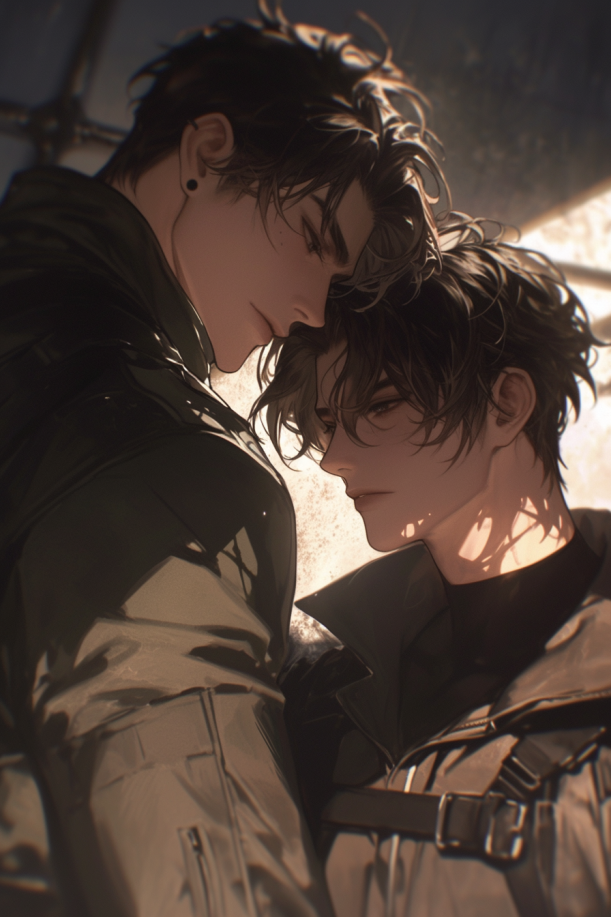Chapter 18
“He first said it was a gift from a fellow townsman, which struck me as odd at the time, because I’d never heard him mention any local acquaintances before. I was worried he was too naive and might run into trouble with some bad people. Someone buying you something so expensive for no reason—doesn’t that sound suspiciously like someone currying favor?” Scott Grant flicked his cigarette ash. “I kept pressing him about it, and only then did he tell me that one day, while making a delivery, he got into a bit of a scuffle with someone and was hit a few times. He didn’t fight back, and later, for some reason—maybe the other side regretted it—they apologized and made amends.”
Eric Harris and Jason Turner exchanged a glance—this situation had never come up during their previous interviews.
Getting into a conflict and then receiving an apology—what’s there to hide about that?
If it was true, why did Stephen Wright speak so vaguely and pretend it was a gift from an acquaintance?
Stephen Wright lived with so many people, and no one noticed he’d been beaten, which meant the physical altercation wasn’t serious. So why, when apologizing, would the other party also give such an expensive gift?
All of a sudden, this murder case, which had seemed like it could be solved just by checking the victim’s personal relationships, became inexplicably complicated.
Scott Grant didn’t know the exact origin of that mysterious phone, but he did provide a rough time frame for when the conflict happened. Eric Harris and Jason Turner had no choice but to follow this lead, making their way to the delivery company where Stephen Wright worked, searching for any clues.
In the afternoon, the once clear sky changed without warning. The arrogant sunlight was besieged on all sides by clouds that had appeared from nowhere, and the oppressive wind carried a hint of moisture. It looked like a sudden downpour was imminent.
William Carter got out of the car near a subway entrance but didn’t leave right away. He pressed his hand against the car door and glanced around. A van that had been parked at the intersection suddenly started moving as his gaze swept past, creeping away as if guilty of something.
William Carter bent down slightly, leaned in through the half-open window, and whispered in the driver’s ear, “Someone’s watching you. Be careful. If anything happens, contact me immediately.”
The unlicensed cab driver, sweating despite the cold air from the AC, nodded quickly.
William Carter gave him a deep look, then turned and walked toward the subway station. Just after passing through security, his phone rang.
“Eric Harris, how’s it going?” He spoke as he swiped his card to enter, then suddenly stopped in his tracks. “What? Repeat that name for me.”
In Edward Bennett’s office, a window that wouldn’t close properly slammed shut with a bang in the wind, sending a few sheets of paper fluttering to the floor. At that moment, his hand, which had been loosely holding the mouse, suddenly moved.
Edward Bennett froze a frame on one of the surveillance videos, zoomed in, then rewound. He found the time was around 8:50 p.m.
It was a camera on the very edge of the property, barely within the bounds of Chenguang Mansion, filming a stone path.
Because it was near a waterway, there were still plenty of mosquitoes even in early summer. Few people passed by after dark, and those who did hurried along. Yet a hesitant figure lingered under the streetlight for a long time.
From the footage, all that could be seen was a short, thin person in a rough, ill-fitting suit, standing in place and smoking several cigarettes in a row. He clutched a kraft paper bag tightly in his hands, occasionally glancing in one direction. After a while, he seemed to receive a phone call, exchanged a few words, and then hurried out of the camera’s view.
Edward Bennett watched this segment of video several times, unsure if it was the deceased he’d met once. He grabbed his car keys, shut his laptop, and left.
Forty minutes later, Edward Bennett arrived at the central business district of the Flower Market area.
He glanced up at the increasingly gloomy sky, pulled an umbrella from the trunk, and walked toward the scenic area near Chenguang Mansion.
Edward Bennett had an excellent sense of direction and found the location of the surveillance camera almost without taking a wrong turn.
The humidity in the air was so thick it was about to fall as rain. He carefully examined the camera’s position, recalled the direction the person in the video kept looking, and turned around—at the end of the path, the shadowy outline of Chenguang Mansion was just visible.
Edward Bennett’s gaze landed on the trash can nearby—on the stone used to stub out cigarettes, a few cigarette butts lay all alone.
Few people came here, and the trash can was clean, with almost nothing thrown in. The cleaning staff probably only came by every ten days or so. Edward Bennett took a silk handkerchief from his pocket and carefully picked up the cigarette butts.
Just then, his phone rang.
Unhurried, Edward Bennett wrapped up the cigarette butts before taking out his phone. When he saw the caller ID, he smiled before saying a word: “What’s this, missing me so much after just one day apart?”
Eric Harris’s voice was very serious: “The night before last, were you at Chenguang Mansion?”
“I was,” Edward Bennett paused, “why?”
“Were you with someone named David Clark?”
Edward Bennett froze, not yet able to reply, when a clap of thunder exploded overhead and a torrential rain came pouring down.
Chapter 8: Julien Seven
Samuel Reed rushed into the city bureau office building with a folding umbrella, taking three steps at a time and leaving a long trail of wet footprints behind her.
